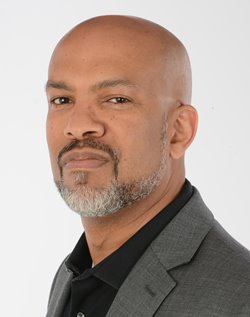
Dushaw Hockett
BE4ALL (Belonging and Excellence for All) launched in December 2021. It is a joint endeavor supported by SMACNA, SMART and ITI. The initiative envisions a diverse, inclusive and unionized sheet metal industry that is welcoming and fosters belonging for all. Here, we offer examples of how companies are making this work a reality, focusing on recruitment and retention.
Recruitment
Airbnb, Accenture and Yelp have committed to recruiting diverse employees at all levels. Ellen Shook, chief leadership and human resources officer for Accenture, describes in Harvard Business Review the goals her company put into action to increase African American, black, Hispanic and Latino employees and to double the number of racially and ethnically diverse managing directors by 2025:
- Use census data to find officers in diverse urban areas.
- Remove bachelor’s degree requirements from 48% of employee roles to broaden the talent pool.
- Launch apprenticeship programs to create new career pathways for non-traditional hires.
Melissa Thomas-Hunt, today a professor for the Darden School of Business, served as Airbnb’s head of global diversity and belonging. In Harvard Business Review, she says diversity efforts can do a better job of addressing the needs of black workers, focusing on data and numbers, company culture, and day-to-day people management.
Thomas-Hunt emphasized the importance of putting systems into place that will identify, attract and hire under-represented talent across all levels and to ensure that employees of color in lower-level positions are given opportunities for success and growth.
In 2014, only 10% of Yelp’s engineers were female, 7% of Yelp’s employees were Hispanic and 4% were black. Leaders at Yelp decided to implement changes to focus on recruiting candidates of all backgrounds who would help to customize its services for a diverse set of users. The company’s approaches to increasing diversity included:
- Varying the gender composition of hiring committees.
- Masking voices during phone interview screening.
- Expanding on-campus recruiting efforts to include historically black universities, women’s colleges and schools with higher numbers of Hispanic students.
- By 2017, 18% of technical positions at Yelp were held by women, 10% of employees were Hispanic, and 6% were black. Yelp is still striving to explore what works, what doesn’t and why, to build a tool kit that tech companies can use to create a more diverse and inclusive workforce.
Retention
Ryan Carson, CEO and founder of Treehouse, an online school for software engineers, saw a need for a more diverse workforce. So, his company created a pilot apprenticeship program, partnering with the Boys and Girls Club of Portland, Oregon, to recruit talent from underrepresented groups. Five candidates successfully completed training and were hired as apprentices at Treehouse and two partner companies in Portland. They entered a six-month mentorship program. Four of the five first apprentices moved from hourly pay to salary and benefits and still remain employed with the companies today.
Of the lessons learned, Carson realized new recruits would need laptops and internet access, and partner companies needed more diversity, equity and inclusion training. The early results were so encouraging that Treehouse not only continued its program.
A Harvard Business Review podcast features an interview with Donna Johnson, chief diversity officer at Mastercard. She described three strategies she implemented at Mastercard before her retirement in 2017:
- Branding the diversity and inclusion work with a logo and mission statement so everyone in the organization recognizes and embraces it.
- Creating Business Resource Groups focused on ways to improve the organization to make it more attractive to new employees and retain current employees, so everyone feels engaged and valued.
- Making diversity and inclusion a global initiative.
For more information about BE4ALL, please contact Jen Squirewell at jsquirewell@smacna.org.